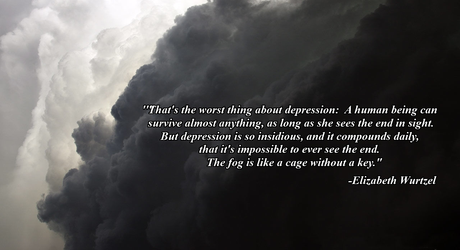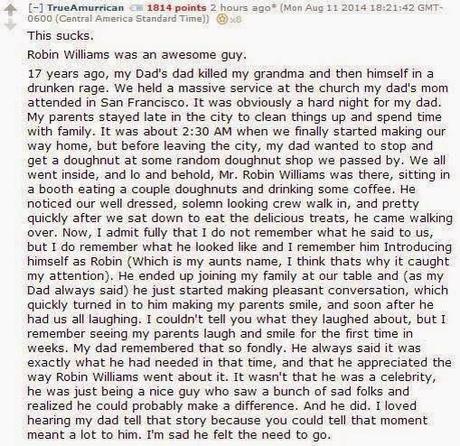
According to an article on NAMI's website "Major depression is a mood state that goes well beyond temporarily feeling sad or blue. It is a serious medical illness that affects one’s thoughts, feelings, behavior, mood and physical health. Depression is a life-long condition in which periods of wellness alternate with recurrences of illness." NAMI is a mental health organization and they sponsor events and treatment for those who suffer with mental illnesses like major depression.
5-8 percent of Americans or roughly 25 million Americans will suffer from major depression this year alone and are also more likely to have recurrent episodes of major depression throughout their lives.
Many, even in the medical community, insist that depression is not a disease. But if something is wrong with a patient's heart we understand that is caused by a disease. If something is wrong with a patient's kidney, we understand that is a disease but if something is wrong with the brain somehow it's more comfortable to differentiate and say that's a mental illness rather than a disease. It's also more comforting to blame the patient rather than understand that their situation is largely out of their control. They too suffer from a medical disease and should feel no more shame in that than if they had heart disease or diabetes.
As someone who has suffered from major depression and am lucky to be alive after an unsuccessful suicide attempt I can relate to the hellish place a person must be in to consider suicide a good idea. Understanding the nature of the problem is crucial in managing its impact in your life.
We have recently seen celebrity deaths due to addiction and/or depression/suicide. Phillip Seymour Hoffman and yesterday Robin Williams committed suicide.
Robin Williams battled alcoholism and major depression and there is a downward cycle of depression contributing to alcoholism which in turn contributes to depression. It is a nasty cycle and can be deadly as it was for Robin Williams recently.
Robin Williams by most accounts was a wonderful and amazing human being, as amazing a person as he was a performer and I understand that loss but understanding his loss of well being doesn't excuse his behavior but it does make clear that his choice was based on a gut wrenching depression that only means his pain exceeded his ability to cope, not that he was weak or took the cowards way out. Ernest Hemingway was a man's man yet he suffered and was taken by depression and alcoholism as well, he was no coward either.
Sharing stories that demonstrate a person's character is a great way to remember them I think so I'll share this story about Robin Williams:
 Robin Williams used his gift for humor to lighten the burdens of total strangers simply because he knew he could make a difference. That is truly wonderful, and yet he could not rescue himself from the depths of a sinister depressive episode that was such that death seemed like a win. Death was preferable to continued torment at the hands of his personal demons.
Robin Williams used his gift for humor to lighten the burdens of total strangers simply because he knew he could make a difference. That is truly wonderful, and yet he could not rescue himself from the depths of a sinister depressive episode that was such that death seemed like a win. Death was preferable to continued torment at the hands of his personal demons.The saddest part, to me, is that 25 million people just in our country alone go through this every year and they may not make headlines with their battles but they play key roles in our own lives and the example of Robin Williams or any public figure going back to Ernest Hemingway or maybe more notoriously Edgar Alan Poe, and you will find key similarities to the stories of every day people.
For the most part these things are preventable but from personal experience I can say sometimes these things are bound to happen.
There are ways we can care for ourselves. Prayer and meditation done daily help me, so does writing regularly and researching things. Regular psychiatry visits are essential and medication management.
Here's a talk from Elder Holland and I appreciate so much this take from the GC pulpit.
